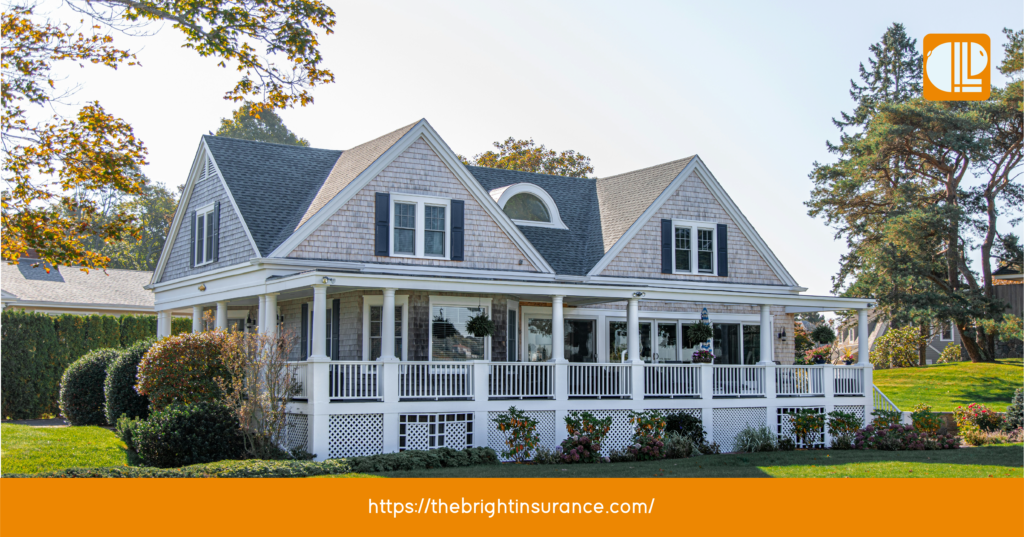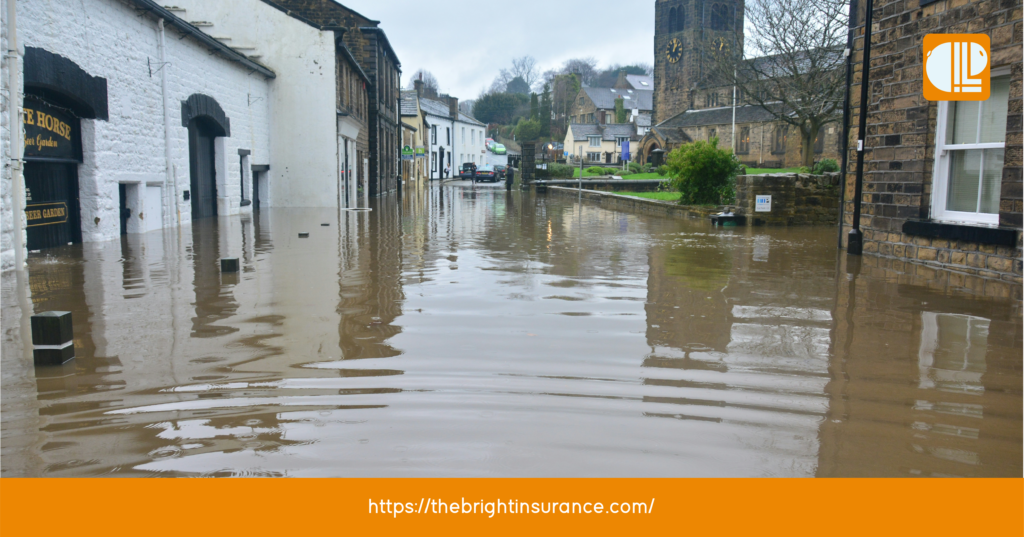Protecting Your Home: A Comprehensive Guide to Homeowners Insurance
Homeowners insurance is essential for protecting your home from potential risks. This guide will cover the basics of homeowners insurance, its importance, how to choose the right policy, and the significance of wind and hail damage coverage. We’ll also highlight top insurance companies, provide tips for filing claims, and suggest ways to safeguard your home from such damage.
Understanding Homeowners Insurance

Homeowners insurance is a type of insurance policy that provides financial protection for your home and its contents against damage or loss due to covered events. These events typically include natural disasters, such as storms and fires, as well as theft and vandalism. The primary aim of homeowners insurance is to safeguard your investment, ensuring you have the necessary resources to repair or rebuild your property if it is damaged or destroyed.
When you purchase homeowners insurance, you enter into a contract with an insurance company. In return for paying regular premiums, the insurance company agrees to cover specific types of damage or loss. This coverage can include the structure of your home, your personal belongings, and liability for accidents that occur on your property.
Why is Homeowners Insurance Important?

Homeowners insurance plays a critical role in protecting your home and financial stability. Your home is likely your most significant financial investment, representing years of hard work, savings, and personal commitment. Without homeowners insurance, you would be financially responsible for any damages or losses, which could be overwhelming.
For example, imagine a severe storm damages your roof and causes extensive water damage to the interior of your home. Without insurance, you would have to cover the full cost of repairs yourself, which could be financially devastating. With proper coverage, you can file a claim and receive the necessary funds to restore your home to its pre-damaged condition.
Additionally, if you have a mortgage, your lender will typically require homeowners insurance to protect their investment in your property. This requirement ensures that, in the event of a significant loss, the lender’s interests are safeguarded. Homeowners insurance also provides coverage for personal belongings, such as furniture and electronics, and can offer reimbursement for temporary living expenses if your home becomes uninhabitable due to a covered event.
Furthermore, homeowners insurance can include coverage for other structures on your property, such as detached garages or sheds. It may also offer liability protection for incidents that occur on or near your property, like a visitor getting injured or a tree falling on a neighbor’s house.
Factors to Consider When Choosing Homeowners Insurance
Selecting the right homeowners insurance involves evaluating several key factors: coverage, cost, and customer service. Each of these elements plays a vital role in ensuring you get the best policy for your needs.

Coverage
Coverage provided by homeowners insurance can vary significantly from one policy to another. It’s essential to understand what each policy covers to ensure it meets your needs and the risks associated with your location. Standard homeowners insurance policies typically cover damage from fire, windstorms, hail, theft, and vandalism. However, additional coverage may be needed for other risks like floods or earthquakes, which often require separate policies or endorsements.
When assessing coverage, consider the replacement cost of your home and personal belongings. Make sure your policy provides sufficient funds to rebuild or repair your home in the event of a disaster. Additionally, evaluate the value of your personal possessions and ensure the policy offers adequate coverage for their replacement or repair.
Some policies also include additional living expenses coverage, which can help pay for temporary accommodation if your home becomes uninhabitable due to a covered loss. This type of coverage is especially important in areas prone to natural disasters where temporary displacement may be necessary.
Cost
The cost of homeowners insurance is a crucial consideration. While a lower premium might seem attractive, it’s important to balance affordability with adequate coverage. Assess your budget and ensure that you have sufficient coverage to protect your home and belongings from potential risks. Comparing quotes from different insurance companies can help you find the best value for your money.
In addition to the premium, understand the deductible associated with the policy. The deductible is the amount you must pay out of pocket before the insurance coverage takes effect. A higher deductible can lower your premium, but it also means you’ll need to pay more in the event of a claim. Consider your financial situation and risk tolerance when choosing a deductible amount.
Look for any available discounts that insurance companies might offer. Many insurers provide discounts for having security systems, smoke detectors, or for bundling multiple policies with them. These discounts can help reduce the overall cost of your homeowners insurance.
Customer Service
Customer service quality is another significant factor in choosing an insurance provider. A homeowners insurance policy represents a relationship between you and the insurer, so it’s important to select a company known for excellent service. Research online reviews and ratings to gauge the customer service experiences of other policyholders.
When evaluating customer service, consider how easy it is to contact the insurer and their responsiveness to inquiries. Find out about their claims handling process and whether it is straightforward and efficient. A reliable insurer should be supportive and responsive during the claims process, providing guidance and assistance when needed.
Also, assess the financial stability of the insurance company. You want to ensure that the insurer has the financial resources to pay out claims. Independent rating agencies, such as A.M. Best or S&P Global, provide ratings that reflect the financial strength of insurance companies.
Finally, consider the convenience of managing your policy. Some insurers offer online portals or mobile apps that allow you to access your policy information, make payments, or file claims easily. Having these tools available can enhance your overall experience with the insurer.
You might like: What Are the Hidden Costs of Homeownership? A Comprehensive Guide
The Importance of Wind and Hail Damage Coverage
Wind and hail damage can be particularly severe and costly. Understanding the risks associated with these natural occurrences and ensuring you have adequate coverage is essential for protecting your property.

Wind Damage
Wind damage can occur in various forms, from strong gusts uprooting trees to causing significant damage to roofs, siding, and windows. The force of the wind can create openings in your home, allowing rainwater to enter and cause additional damage to the interior. Having coverage that specifically addresses wind damage is crucial, as the repairs and replacements can be expensive.
Hail Damage
Hailstorms can cause extensive damage in a short period. Hailstones vary in size, and larger ones can create dents, cracks, or holes in roofing, siding, and windows. This damage can compromise the structural integrity of your home and lead to water damage if the hailstones create openings. With increasing severe weather events in many regions, having adequate hail damage coverage is essential.
Even in areas with milder climates, unexpected storms can bring strong winds and hail. Therefore, it’s important to have insurance coverage that protects against these risks. Review your policy carefully to understand any limitations or exclusions related to wind and hail damage and consider additional endorsements if necessary.
Also read: How Homeowners Insurance Can Save You From Fire Losses
Frequently Asked Questions
1. What is homeowners insurance?
Homeowners insurance is a type of property insurance that provides financial protection against damage or loss to a home and its contents. It typically includes coverage for the home’s structure, personal belongings, and liability protection.
2. What does homeowners insurance typically cover?
It usually covers damage from fire, theft, vandalism, and certain natural disasters. Liability coverage is also included in case someone is injured on your property.
3. Does homeowners insurance cover wind and hail damage?
Yes, many policies cover wind and hail damage. However, the extent of coverage can vary. Review your policy details and consult with your insurer to understand the specific coverage for wind and hail damage.
4. Which insurance companies are known for providing coverage for wind and hail damage?
Companies such as State Farm, Allstate, Farmers Insurance, USAA, and Liberty Mutual are known for providing coverage for wind and hail damage. Comparing quotes and policies from these companies can help you find the best coverage for your needs.
5. What factors should I consider when choosing a homeowners insurance company for wind and hail damage coverage?
Consider the insurer’s reputation, financial stability, coverage options, deductibles, and premiums. Compare quotes and review policy terms to ensure adequate protection for wind and hail damage, and choose an insurer that offers good value and reliable service.








Temp Mail I do not even understand how I ended up here, but I assumed this publish used to be great
Thanks you so much! Your feedback is much valuable.
Vitazen Keto This was beautiful Admin. Thank you for your reflections.
Thank you so much! Your feedback is much valuable.
Your blog has quickly become my go-to source for reliable information and thought-provoking commentary. I’m constantly recommending it to friends and colleagues. Keep up the excellent work!
Thank you so much! Your feedback is much valuable.
Fantastic site Lots of helpful information here I am sending it to some friends ans additionally sharing in delicious And of course thanks for your effort
Thank you so much! Your feedback is much valuable.
Ive read several just right stuff here Certainly price bookmarking for revisiting I wonder how a lot effort you place to create this kind of great informative website
Thank you so much! Your feedback is much valuable.
Real Estate I am truly thankful to the owner of this web site who has shared this fantastic piece of writing at at this place.
Thank you so much! Your feedback is much valuable.
Nutra Gears I appreciate you sharing this blog post. Thanks Again. Cool.
Thank you so much! Your feedback is much valuable.
Tech to Force You’re so awesome! I don’t believe I have read a single thing like that before. So great to find someone with some original thoughts on this topic. Really.. thank you for starting this up. This website is something that is needed on the internet, someone with a little originality!
Thank you so much! Your feedback is much valuable.
Isla Moon Very well presented. Every quote was awesome and thanks for sharing the content. Keep sharing and keep motivating others.
Thank you so much! Your feedback is much valuable.
Nice blog here Also your site loads up fast What host are you using Can I get your affiliate link to your host I wish my web site loaded up as quickly as yours lol